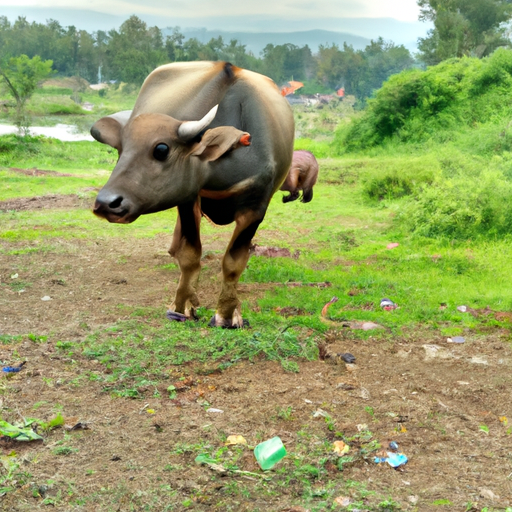 Introduction:
Introduction:
The natural world is an intricate web of interconnectedness, with every component playing a vital role in maintaining balance and harmony. At the heart of this intricate tapestry lie animals, whose presence and activities have far-reaching implications for the health and stability of ecosystems. From the tiniest insects to the mighty apex predators, each species contributes to the delicate balance that sustains life on Earth. In this article, we delve into the multifaceted importance of animals, examining their ecological roles and the profound impact they have on the planet’s ecosystems.
1. Biodiversity and Species Interdependence:
Animals represent an integral component of biodiversity, the diversity of life on Earth. The intricate relationships between animals and their environment promote resilience and stability within ecosystems. Species interdependence ensures the survival of many plants, as animals act as pollinators, seed dispersers, and even seed predators. The intricate dance between flowering plants and their pollinators, such as bees, butterflies, and birds, exemplifies the critical role animals play in maintaining the reproductive cycle of numerous plant species.
2. Nutrient Cycling and Soil Health:
Through their feeding habits and behaviors, animals actively participate in nutrient cycling, facilitating the movement of essential elements through the ecosystem. Herbivores, such as ungulates, graze on vegetation, contributing to nutrient recycling by breaking down plant matter into smaller particles, enhancing decomposition rates, and enriching the soil with their fecal matter. This process, in turn, supports the growth of plants, contributing to the overall productivity of ecosystems.
3. Predation and Population Control:
Predators occupy a crucial position within food webs, regulating prey populations and maintaining a healthy balance among various species. By preying upon herbivores, predators control population sizes, preventing overgrazing and maintaining the integrity of plant communities. This cascading effect ensures the availability of resources for other organisms and helps maintain ecosystem stability. Additionally, the presence of predators influences the behavior of prey species, driving adaptations and promoting biodiversity.
4. Ecosystem Engineering and Habitat Creation:
Animals, particularly those considered ecosystem engineers, significantly impact the physical structure of habitats. Beavers, for example, construct dams that create wetlands, providing critical habitats for a wide range of other plants and animals. Similarly, burrowing animals like prairie dogs and gopher tortoises create complex underground systems that facilitate water infiltration, enhance nutrient cycling, and support a diverse array of species. These animals actively shape their surroundings, influencing water availability, soil composition, and overall ecosystem health.
5. Pollutant Regulation and Disease Control:
Animals contribute to the regulation of pollutants in ecosystems, playing a vital role in maintaining environmental quality. Certain species, such as birds and bats, act as natural pest controllers by feeding on insects that may otherwise harm crops or spread diseases. Moreover, scavengers and decomposers, such as vultures and detritivores, help prevent the accumulation of carcasses and organic waste, reducing the spread of pathogens and ensuring the efficient recycling of organic matter.
6. Ecotourism and Economic Benefits:
The presence of diverse animal species in ecosystems fosters ecotourism, generating substantial economic benefits for local communities. Nature enthusiasts and tourists are drawn to areas with rich biodiversity, contributing to local economies through various activities such as wildlife photography, guided tours, and conservation initiatives. These economic incentives provide a strong motivation for the preservation and conservation of animal habitats, consequently safeguarding entire ecosystems.
Conclusion:
Animals, in their myriad forms, are indispensable to the intricate balance and functioning of ecosystems. From nutrient cycling to pollination, predator-prey relationships to habitat creation, animals play an irreplaceable role in sustaining life on Earth. Recognizing and appreciating their importance is crucial for the preservation of biodiversity, environmental stability, and ultimately, the well-being of all species, including our own. As stewards of the planet, it is our responsibility to ensure the protection and conservation of animal populations, fostering a harmonious coexistence between humans and the natural world.
